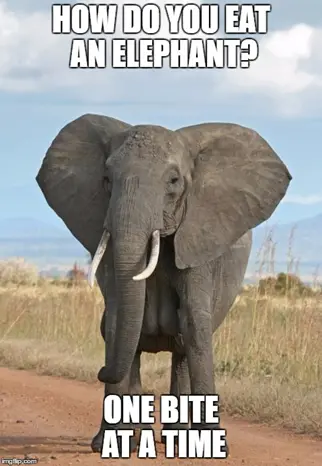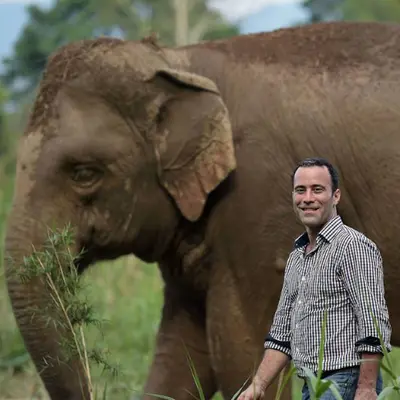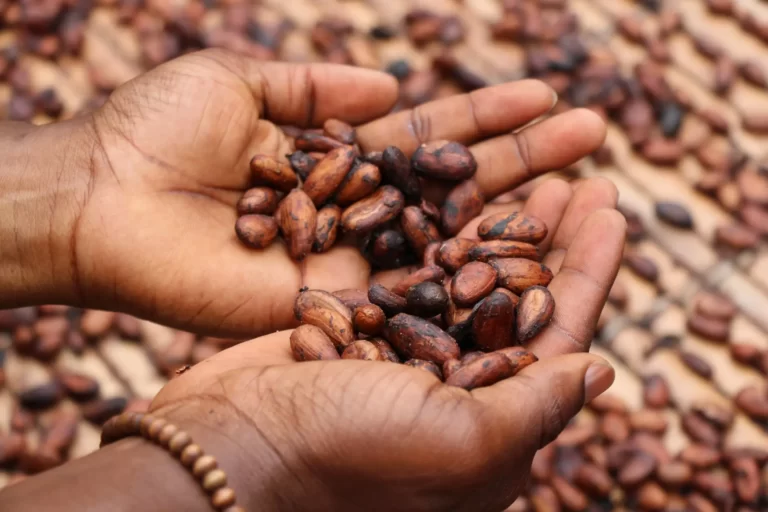There’s a coffee that is even more exclusive than kopi luwak coffee, and it’s even more expensive. And yes, this one also comes from poop. It is called Black Ivory Coffee. What is it with making a cup of coffee out of poop? We’ll never understand. . .
Black Ivory Coffee is the world’s most exclusive coffee that comes from elephant poop. Let that thought sink in for a moment, or don’t. It’s gross.

Today, we’ll be discussing everything about Black Ivory Coffee to give you an idea of why it’s so exclusive compared to any regular coffee.
Origin of Black Ivory Coffee
Black Ivory Coffee is produced from Arabica beans. And not just any Arabica beans; these ones are handpicked from a specific altitude of 1500 meters (around 5000 feet) by women of the Acha tribe In Chiang Mai.
Since Black Ivory Coffee comes from elephant poop, you’ve already guessed that raw coffee cherries are fed to the elephants, and the coffee is collected from elephant dung.
But as it turns out, the elephants are not as good as the kopi luwak in digesting said beans. It takes 33 kilograms (72 pounds) of raw coffee to produce only a kilogram (2 pounds) of Black Ivory Coffee, most of which are chewed up, broken, or lost.
The coffee farm where elephants produce black ivory is in the rural village of Ban Ta Klang, Surin in Thailand. In here, there’s an elephant sanctuary with elephants that have unique dietary habits. Yeah, you’re not alone in the club of picky eaters.
Some elephants Like fruits or sugarcanes, while others prefer salt and rice. But all these elephants have one common item in their diet: the coffee beans we mentioned earlier.
The natural fermentation process in the stomach of the elephants can take from 12 hours to up to 72 hours, depending on what’s already in the elephant’s belly. But this fermentation process is what gives Black Ivory Coffee its unique flavor profile.
During these hours, the enzymes present in the elephant’s digestive tract start breaking down the fruit’s protein. It’s mainly why Black Ivory Coffee has a less bitter taste.
There’s also a traditional fermentation process, and it is done by barrels and casks. This is a different method that allows the coffee cherry fruit to completely infuse into the coffee beans.
Once the digestion process is complete, the digested coffee beans are washed, raked, and dried out in the sun. The bean collectors only collect the intact beans to ensure the best flavor and the perfect roast for the Black Ivory Coffee.
If you’ve been following us for a while now, you already know that broken coffee beans get an uneven roast. That’s why the collection of intact beans is an integral part of the entire process.
The reason it’s the rarest coffee of them all is because of how low it can be produced. As we mentioned earlier, you can get only a kilogram of coffee from 33 pounds of raw coffee that have been fed to an elephant. The coffee farm in Thailand can produce only up to 120kg of Black Ivory Coffee every year.
The highest yield of Black Ivory Coffee was back in 2019 when the coffee farm managed to produce 150kg of this rare delicacy.
Where It’s Available
When the trend of Black Ivory Coffee started, it was only available at a handful of locations such as Abu Dhabi, Thailand, and the Maldives. Even there, it was only available in luxury hotels and resorts.

But thanks to modern technology and the convenience of online shopping, you can order this ultra-rare delicacy from the comfort of your home. And that’s what you should do since I can’t recommend overseas travel in the current world.
Pricing
As you can already tell, as the world’s rarest coffee, this one will set you back quite a bit, even more than the civet poop coffee.
The official site lists their current price as $2499 per kilogram of coffee, making it around $88 for every 35 grams, the average amount for an espresso.
Why Black Ivory Coffee Is So Expensive
The high price count comes from the production cost of the coffee. When you are trying to apply packaging to a lower amount of coffee, the process costs you more to make it worth their while.
The actual cost comes from the elephants themselves. Elephants are 1500-2000kg of a force of nature, who eat 18 hours a day, and sleep only 4 hours. An average healthy elephant consumes 10% of its entire body weight EVERYDAY!

Combine their food cost with the coffee beans, overall maintenance of the elephants to ensure their peak health condition, the payment of the staff, and you can see where the high price tag comes from.
Having fun Nomies? Check out our piece on what is vietnamese coffee.
Brewing Process
The perfect brewing machine for Black Ivory Coffee is something we barely mention over here; that is a siphon coffee brewer. This machine brings every last bit of flavor out of Black Ivory Coffee beans.
Not only is this coffee brewer efficient, but it’s also suitable for the aesthetics, a little eye candy if you will. Siphon coffee brewers date back to the 1840s, and the brewing principle is similar to a French press, where boiled water gets pushed through a metal pipe.
The water is first boiled to a temperature that’s just below boiling point (98 degrees Celsius). When this hot water touches the coffee beans, the temperature comes down to the perfect point for extracting oils and flavor from the beans.
The best part about this entire brewing method? You don’t need a paper filter that can take away from the brew’s taste. With zero papery taste and all the coffee oils and flavors, this brewing method is perfect for getting the best experience with Black Ivory Coffee.
You can also use Black Ivory Coffee beans for more traditional methods like espresso or a drip coffee maker. Still, this stylish, aesthetic machine is the most suitable black ivory coffee brewer.
When the final coffee comes out from this brewing technique, the color of the liquid is light brown, with gold and a somewhat reddish tone. Almost makes you feel like you’re drinking liquid gold.
Flavor Profile
Despite the core material the coffee is produced from, there’s no way to say that Black Ivory Coffee is s*itty coffee.

Black Ivory Coffee is one of the most full-bodied coffees ever, with a complex flavor and balanced aroma. There’s a fruity cherry note mixed with an earthy flavor and butter. The flavor develops a different tone when it cools down a little, containing more notes of chocolate with a leather tone, and the fruity aroma vanishes completely.
The coffee is really smooth with low acidity, and the taste is something that lingers in your mouth for a long time with its distinctive chocolate and caramel notes. The coffee is already a lot less bitter, so it’s always served black with chocolate.
How Ethical Is It?
Though Kopi Luwak once received a lot of hype for being the world’s most unconventional yet distinctive coffee, the whole coffee industry was under fire when animal abuse issues came up. And sadly, that isn’t the only issue with kopi luwak coffee. Here are a few:
- Many farmers force-feed coffee cherries to the civets, forcing them to live on only one diet to ensure extra production, which is totally inhumane.
- Many of these civets contract diseases from living in unsanitary environments.
- Since civets aren’t let out of the cage for the sake of coffee production, some of these civets become obese and fall victim to health issues more quickly.
If you compare the condition of the elephants to the civets, the difference is like day and night. Let’s see how.
First of all, no elephant has ever been force-fed coffee cherries to produce black ivory beans. The primary bean pickers are the mahouts’ wives, who are elephant herders and naturally bonded with the animal.
A little fun fact: You can’t force-feed elephants even if you want to. Either they’ll spit the food back in your face or hold their jaws shut and not eat it at all.
They go out and pick through the wastage to look for black ivory beans, but they don’t question if there’s none. Because the mahouts are aware that the elephants have unique ways with their digestion, and they can always wait for more.
The creator of Black Ivory Coffee, Blake Dinkin, has gone out of his way to address the controversy surrounding civet coffee. He strictly believes in the welfare of his projects, and he also takes steps to ensure the best for the elephants that provide us with this rare coffee.

The elephants in the coffee farms aren’t captured animals. Instead, they’ve rescued elephants who were previously under abusive ownership. Dinkin’s farm shelters and cares for these elephants while checking their compatibility with Black Ivory Coffee cherries.
These elephants are allowed to roam freely in their natural habitat, with no one to force them to do anything they don’t like. Black Ivory Coffee is only manufactured from elephants willing to eat coffee cherries to poop them out.
Another way Dinkin’s coffee ensures it’s entirely ethical is with the payment of the workers. In Dinkin’s own words, “In Thailand, a coffee picker typically earns about seven baht per kilo. For Black Ivory Coffee, I pay 350 baht per kilogram of picked coffee. That’s 50 times more than the average.”
Golden Triangle Asian Elephant Foundation
8% of the sales money from Black Ivory coffee company goes to Golden Triangle Asian Elephant Foundation. This foundation works on the welfare of the elephants by educating the younger generation about the human-elephant conflict and teaching them the importance of protecting the elephants.
The human-elephant conflict started when farmers started killing large mammals to prevent crop destruction. But the Golden Triangle Asian Elephant Foundation has worked relentlessly since its dawning years to stop that from happening.
Dinkin didn’t just make coffee for the coffee snobs. He made sure it helps as many who are associated with production every step of the way. He ensured the ethical rule of “co-existing and thriving of human, animal, and nature.”
Had fun reading? You’ll love to read our piece on what is kopi luwak.
Bottom Line
With a huge price tag and dispelled controversies, black ivory coffee is something all coffee lovers can try out without worrying about the ethics issues (and considering your wallet allows you to).
If you decide to order it, we hope your experience is pleasant, and you can taste it along with your friends and family to spread more happiness.
Cheers!
FAQs
The best way to make black ivory coffee is using a siphon coffee brewer that works similar to a French press.
The maintenance of the elephants, the packaging cost, and the compensation of the staff in charge of everything make ivory coffee a very pricey delicacy.
The rich and complex taste, along with its scarcity, is what makes elephant poop coffee, or black ivory special.
Each kilogram of Ivory Coffee costs $2499.
Elephants don’t allow their caretakers to force-feed them. So if a mahout (elephant caretaker) offers them food mixed with coffee cherries and they accept and eat it, that’s how the mahouts know an elephant is willing to participate in the process.

